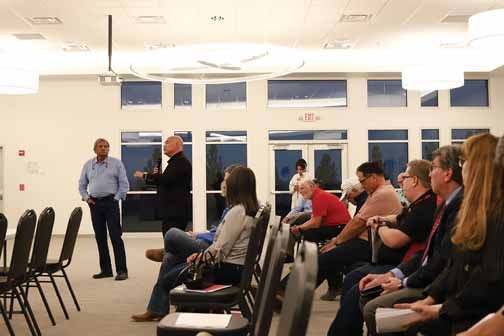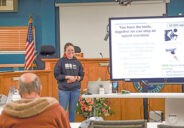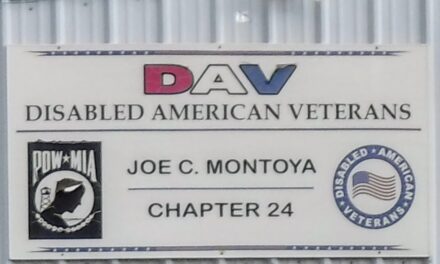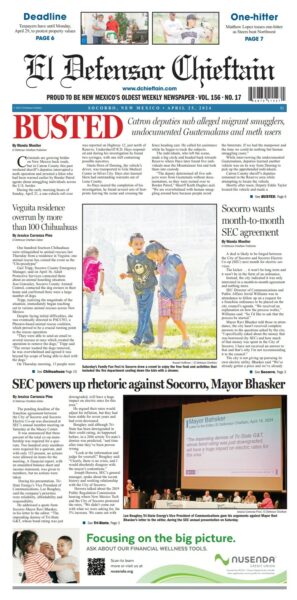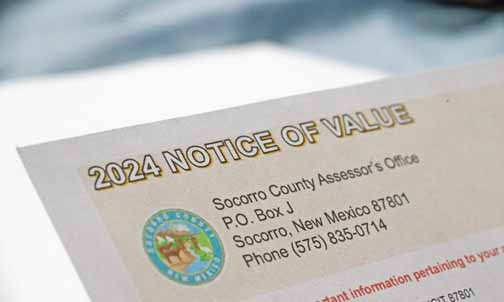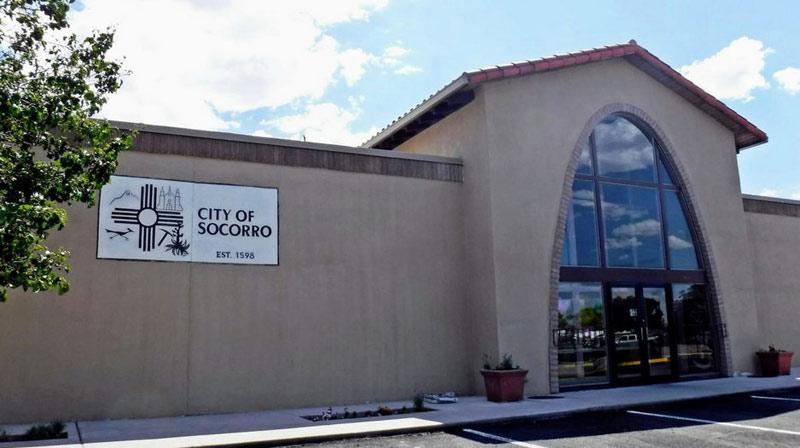City of Socorro Mayor Ravi Bhasker led the presentation of the municipal electrification project to the School Board Monday night.
Mayor Bhasker informed the school board and the audience of about 50 attendees that the city council had been working towards becoming a municipal electric supplier for the last seven years.
According to Mayor Bhasker, the City and New Mexico Tech went to court with the Socorro Electric Co-op in regards to their plans to raise their rates, and the co-op lost that case because the rate structure they proposed “was not good for the City.” The Public Regulation Commission ruled against them.
“City council unanimously said that we will not renew that franchise,” Mayor Bhasker said. “Either the (Socorro Electric) co-op has to sell to us or get off our property.”
He said when the City and the Socorro Electric Co-op went to court, the district judge decided that the co-op franchise would expire in May 2024 and the co-op would be evicted from any properties owned by the City on that date.
Mayor Bhasker said the plan for the City of Socorro was to start at the industrial park corridor first. This includes the hospital, the nursing home, the high school, New Mexico Tech, the new junior high school, the convention center and the rodeo complex. The current plan includes using 20 to 30 % solar, depending on how much the City can afford. They also plan to build their own substation and put in their own lines.
“We came here to show you we have a panel of specialists that the city has been working with for seven years, and these specialists are the ones who are going to help us put this electrical grid together,” Mayor Bhaskerb said. “The bottom line is that we are planning to give you a discount on how much your electricity is costing. What I want you to see is that life goes on without Tri-State.”
Mayor Bhasker said that he didn’t blame Socorro Electric for their rates.
“What Tri-State is charging Socorro Electric is not their fault; it’s part of their contract that they made with different managers for 48 years, and that contract doesn’t expire for another 25 to 30 years, so they are stuck at a certain level of cost,” Bhasker said.
Bhasker estimated that a buyout with Tri-State could cost about 11 to 12 million and said that once it’s paid off, the community will benefit from lower costs. He estimated that price based on the $37 million Kit Carson Co-op paid for their buyout of Tri-State. He pushed for the Socorro Electric Co-op to spend the money to figure out the buyout price. Bhasker acknowledged that, realistically, the City will not be able to provide electricity by May of 2024, when the eviction of the Socorro Electric Co-op will go into effect. The timeline he gave was two to three years.
The presentation continued with Luis Reyes, the CEO of Kit Carson Electric, who spoke to the benefits Taos and their schools experienced when they started their own electric company, stating that they are 100% solar during the day and have worked with schools to create curriculums for students to learn trades in energy production. Reyes said they paid off the $37 million buyout to Tri-State in six years.
Ravi Malhotra, the founder and president of the International Center for Appropriate and Sustainable Technology, spoke about the billions of dollars in solar energy incentives available right now. Jeff Hait from Guzman Energy, Nann Winter, the City’s utility lawyer, Ed Reyes from Enchantment Energy Consulting, and John Lester of Finley Engineering spoke about their experiences with electric co-ops.
School board members asked questions about cost, inflation, options, preparation for expansion, phases of the project, and the intentions of the City.
During questions, Tara Jaramillo, school board member and state house representative, asked the attorney, Nann Winter, if the schools had a choice if Socorro Electric was evicted from city property. She pushed for answers regarding what would happen to the school’s access to electricity during the transition and eviction.
“Socorro Electric is mandated to provide you power. No matter what happens, they are your provider. Meanwhile, the City of Socorro plans on building.” Winter said..
Jaramillo also questioned if the Socorro Electric co-op would raise their rates due to losing customers and if the new municipal electric company would have higher rates as they are starting.
Mayor Bhasker responded, “They (Socorro Electric Co-op) would have to go to the Public Regulations Commission to get a rate increase first. The City would help you with solar and battery storage behind the meter so that it would offset some of the increases that would happen. There may be a burden to bear for the next four or five years,”
“I think the city and council are willing to work with the co-op and work toward this progressive model,” Bhasker said. “It’s a process.”
At the end of the presentation, school board member Michael Hargather said, “I think the school district falls in a unique category, where we are split across the potential plans, and I don’t think there are any other entities in the city that could potentially be purchasing from two sources,” said Hargather “It’s an interesting spot for the district to be in.”
